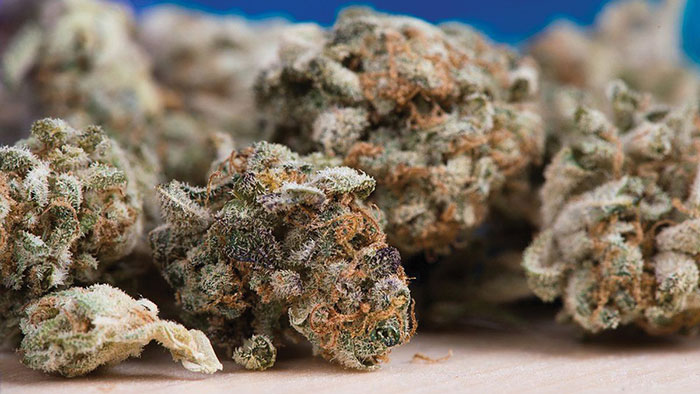Normally, when we look at opinion data measuring Americans’ increasingly tolerant attitude toward cannabis, we focus on how many of our fellow citizens favor legalization and other proposals to liberalize pot laws (decriminalization, efforts to shield banks from liability for dealing with legal weed businesses, the expungement of pot crimes from criminal records, etc.).
But there’s another way to measure attitudes that might tell us even more about where cannabis might go in the future: how people feel about the plant itself, regardless of the law, and how many people actually consume it. Recent survey research indicates that increasing numbers of people are not merely “tolerant” toward weed, but have an outright positive view of it.
Gallup recently issued results of a survey that got a lot of media attention because it showed that, for the first time, the number of people who use cannabis had surpassed the number of people who smoke cigarettes.
That’s remarkable, if hardly surprising. Much more interesting were Gallup’s findings about Americans’ attitudes toward weed. Nearly half now believe that cannabis “has a positive effect on society.” Not surprisingly, this view is more widely held by younger people. About 53% of those aged 35-54 said pot has “positive effects” on those who use it. Among respondents aged 18-34, that number is 62%.
Oddly, Gallup itself took these numbers to mean that, as its headline put it, Americans are “not convinced” that pot is good for society. If anything, the data shows the opposite, since the numbers are rising. But as a snapshot, it shows that Americans are split on the question, for now. Given that Americans were overwhelmingly anti-weed just a decade or so ago, an even split is unquestionably good news for pot advocates, and for the legal industry.
Not surprisingly, the pro-weed sentiment is higher among people who have at least tried cannabis, and lower among people who never have. On whether weed is good for society, 70% of the people who have tried weed said “yes,” while 29% said “no.” Maybe the latter group got a bad batch. Among people who have never tried weed, 62% said it was bad for users, and 72% said it was bad for society.
And yet, the survey also showed that more than two-thirds of Americans favor full national legalization. Clearly, lots of people who don’t use cannabis, and perhaps even oppose its use personally, nevertheless believe it should be legal, either for medical patients or for all adults. That comports with history: Even when very few people favored legalization, a substantial subset of those who did were people who didn’t smoke it themselves, and might even punish their kids for doing so.
In the ’60s and ’70s, Libertarians often cited their support of legalization as a recruiting tool. It was often successful, as we can see today by following pot advocates, a substantial minority of whom are big fans of people like Ron Paul and Thomas Sowell. (The old joke was, and still is, “a Libertarian is just a conservative who smokes pot.”)
Alcohol, Gallup noted, is still by far the most popular “substance,” as the pollster puts it, among cannabis, tobacco and booze. And yet, Americans seem to finally have a pretty good handle on the relative harms. Almost nobody thinks tobacco is “good” for either society or individual users. But while alcohol remains Americans’ favorite “substance,” three of every four of us believe it harms society, and nearly the same proportion think it harms individual consumers.
Perhaps the best news for the legal cannabis industry is that more people are consuming weed. In 1969, just 4% of Americans reported having used pot at least once. Now, that number is at 48%, with 16% saying they currently use cannabis, up from 12% just a year ago. As recently as 2013, the first year of legalized adult-use weed in any state, only 7% of Americans said they were current cannabis users.
While the short-term prospects for the legal-weed industry appear dim, thanks to various factors, including continued federal illegality, America’s changing attitudes toward pot point to a bright future ahead.
Originally posted on EastBayExpress.com








